Yu-Ao Chen
Parameterized quantum comb and simpler circuits for reversing unknown qubit-unitary operations
Mar 06, 2024
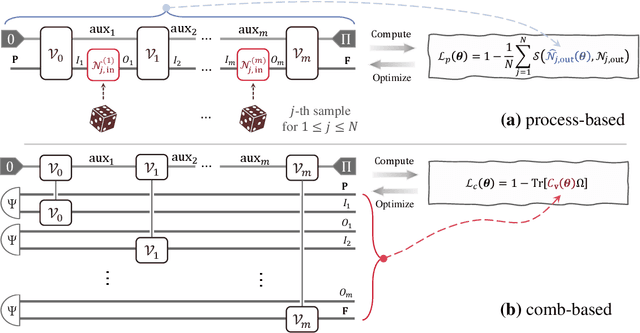
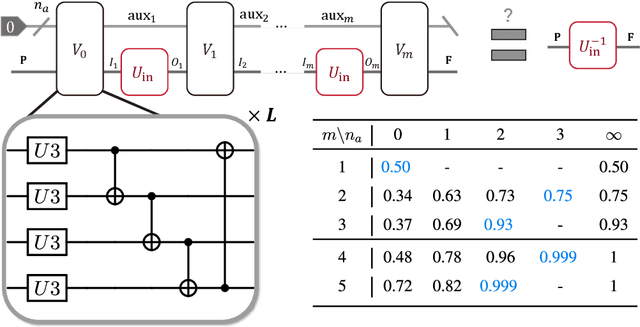
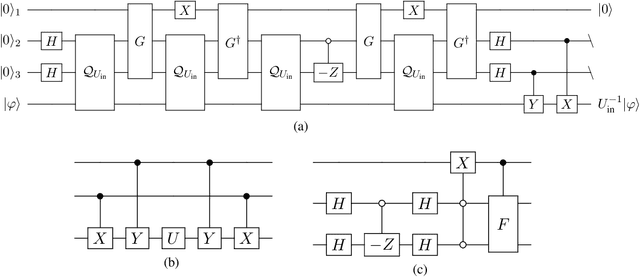
Abstract:Quantum comb is an essential tool for characterizing complex quantum protocols in quantum information processing. In this work, we introduce PQComb, a framework leveraging parameterized quantum circuits to explore the capabilities of quantum combs for general quantum process transformation tasks and beyond. By optimizing PQComb for time-reversal simulations of unknown unitary evolutions, we develop a simpler protocol for unknown qubit unitary inversion that reduces the ancilla qubit overhead from 6 to 3 compared to the existing method in [Yoshida, Soeda, Murao, PRL 131, 120602, 2023]. This demonstrates the utility of quantum comb structures and showcases PQComb's potential for solving complex quantum tasks. Our results pave the way for broader PQComb applications in quantum computing and quantum information, emphasizing its versatility for tackling diverse problems in quantum machine learning.
Virtual Quantum Markov Chains
Dec 04, 2023Abstract:Quantum Markov chains generalize classical Markov chains for random variables to the quantum realm and exhibit unique inherent properties, making them an important feature in quantum information theory. In this work, we propose the concept of virtual quantum Markov chains (VQMCs), focusing on scenarios where subsystems retain classical information about global systems from measurement statistics. As a generalization of quantum Markov chains, VQMCs characterize states where arbitrary global shadow information can be recovered from subsystems through local quantum operations and measurements. We present an algebraic characterization for virtual quantum Markov chains and show that the virtual quantum recovery is fully determined by the block matrices of a quantum state on its subsystems. Notably, we find a distinction between two classes of tripartite entanglement by showing that the W state is a VQMC while the GHZ state is not. Furthermore, we establish semidefinite programs to determine the optimal sampling overhead and the robustness of virtual quantum Markov chains. We demonstrate the optimal sampling overhead is additive, indicating no free lunch to further reduce the sampling cost of recovery from parallel calls of the VQMC states. Our findings elucidate distinctions between quantum Markov chains and virtual quantum Markov chains, extending our understanding of quantum recovery to scenarios prioritizing classical information from measurement statistics.
Experimental Quantum Generative Adversarial Networks for Image Generation
Oct 21, 2020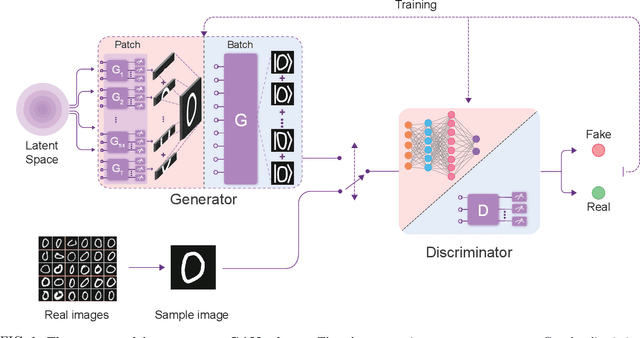
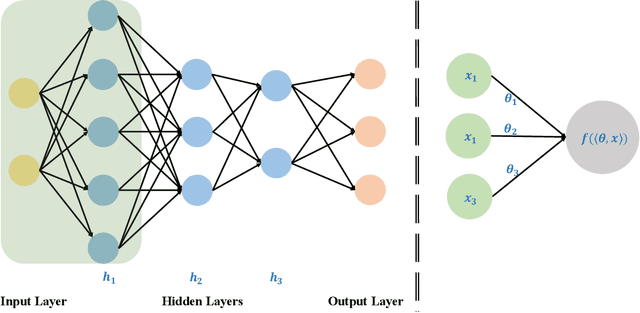

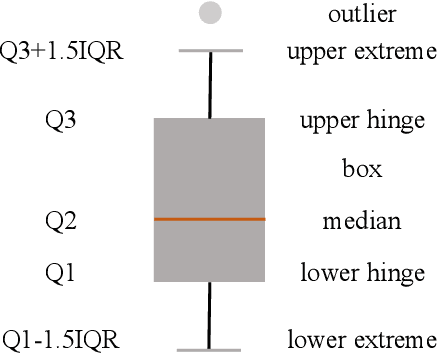
Abstract:Quantum machine learning is expected to be one of the first practical applications of near-term quantum devices. Pioneer theoretical works suggest that quantum generative adversarial networks (GANs) may exhibit a potential exponential advantage over classical GANs, thus attracting widespread attention. However, it remains elusive whether quantum GANs implemented on near-term quantum devices can actually solve real-world learning tasks. Here, we devise a flexible quantum GAN scheme to narrow this knowledge gap, which could accomplish image generation with arbitrarily high-dimensional features, and could also take advantage of quantum superposition to train multiple examples in parallel. For the first time, we experimentally achieve the learning and generation of real-world hand-written digit images on a superconducting quantum processor. Moreover, we utilize a gray-scale bar dataset to exhibit the competitive performance between quantum GANs and the classical GANs based on multilayer perceptron and convolutional neural network architectures, respectively, benchmarked by the Fr\'echet Distance score. Our work provides guidance for developing advanced quantum generative models on near-term quantum devices and opens up an avenue for exploring quantum advantages in various GAN-related learning tasks.
 Add to Chrome
Add to Chrome Add to Firefox
Add to Firefox Add to Edge
Add to Edge